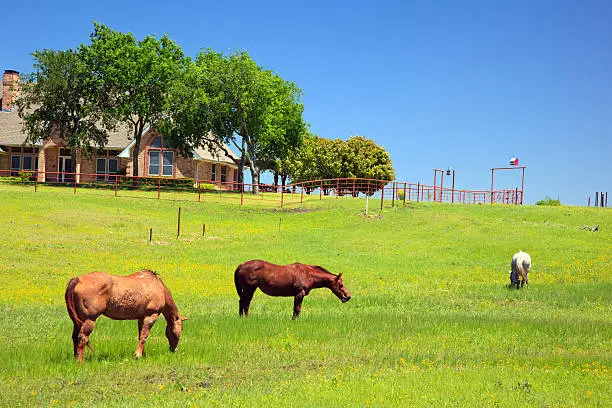Probate is never a simple process, but it can feel like navigating an entirely different world for Texas ranchers. Texas is home to some of the country’s largest and most valuable rural estates. Ranches are often passed down through generations, holding monetary value and deep sentimental significance. However, the unique structure of rural estates—sprawling tracts of land, livestock, mineral rights, and operational complexities—can make probate far more challenging than with urban properties. This article unpacks the unique challenges ranchers face during probate, highlights the specific nuances of Texas law, and offers actionable strategies to help ranch owners protect their assets and ensure a seamless transition for future generations.
What is Probate, and Why Is It Challenging for Ranchers?
Probate is the legal process by which a deceased person’s estate is administered, ensuring debts are paid and assets are distributed to heirs. It typically involves verifying a will, valuing the estate, settling debts, and transferring ownership of the remaining assets.

For ranchers, probate comes with unique challenges that can delay the process and create family disputes. Unlike a typical urban estate, which may consist of bank accounts, a home, and personal belongings, rural estates often include:
- Large tracts of land that vary significantly in value depending on location, soil quality, and mineral rights.
- Livestock, which must be appraised for their market value.
- Specialized equipment and machinery critical to ongoing ranch operations.
- Water and mineral rights, which require separate legal attention.
Ranches are more than just property—they’re businesses. This makes probate for ranchers an intricate balancing act between legal requirements, operational continuity, and family expectations.
Unique Challenges in Probating Rural Estates
1. Valuation Complexities
The valuation of ranch assets is one of the biggest hurdles in probate. A ranch’s worth isn’t just about its size; it’s determined by various factors, including land use, income potential, and even hidden resources like oil or gas.
Key Asset Valuation Challenges:
- Land: A ranch in West Texas might be priced differently than one in East Texas due to resource availability, climate, and market demand.
- Mineral Rights: If the ranch includes oil, gas, or other natural resources, these rights need to be appraised separately, and royalties from existing leases must be accounted for.
- Livestock: Cattle, horses, and other livestock must be appraised based on breed, market value, and productivity.
Valuation discrepancies often lead to disputes among heirs, especially when no prior estate plan exists.
2. Family Disputes Over Inheritance

Disagreements among heirs are common in ranch probate cases. One sibling might want to sell the ranch, while another might wish to continue operating it. This divide can lead to:
- Partition Lawsuits: Heirs who cannot agree on how to divide the property may file a partition action, forcing a sale or division of the land.
- Forced Sales: To provide equal inheritance shares, the ranch may need to be sold, even against the wishes of some heirs.
3. Preserving Operational Continuity
Unlike other estates, a ranch is often an operational business. During probate, someone must oversee ranch operations, including caring for livestock, managing workers, and ensuring income streams like grazing leases or mineral royalties continue. Without a plan, probate delays could harm the ranch’s financial stability.
4. Tax Implications for Large Ranch Estates
High-value ranches can easily exceed federal estate tax exemption thresholds, potentially triggering hefty tax liabilities. While Texas doesn’t have an inheritance tax, federal estate taxes apply to estates valued over $12.92 million (as of 2023).
How Texas Probate Laws Impact Ranchers
Texas has specific probate laws that offer advantages for ranchers but also introduce challenges:
1. Independent Administration
Texas allows for independent administration, which is less restrictive and more cost-effective than court-supervised dependent administration. Independent administration lets the executor manage the estate with minimal court involvement—an essential benefit for complex rural estates.
2. Homestead Protections
Texas law provides homestead protections that apply to ranch estates:
- Exemption from Creditors: A qualifying ranch that serves as the deceased’s homestead is protected from most creditor claims.
- Rights of Surviving Spouses: Even if the ranch is willed to someone else, the surviving spouse may have the legal right to remain on the property.
3. Community Property Rules
As a community property state, Texas considers assets acquired during marriage to be jointly owned. Upon death, half of the community property automatically belongs to the surviving spouse, while the other half is distributed per the will or state intestacy laws.
Steps to Simplify Probate for Ranchers
1. Develop a Clear Estate Plan
The cornerstone of avoiding probate headaches is a detailed estate plan. This should include:
- A Comprehensive Will: Specify who inherits what and ensure the will is updated regularly.
- Revocable Living Trusts: Placing assets in a trust allows them to pass directly to heirs without going through probate.
- Succession Planning: Outline how the ranch will be managed and operated after your death.
2. Conduct a Thorough Asset Inventory
List all assets, including land, livestock, equipment, mineral rights, and water rights. Providing a clear inventory can prevent disputes and streamline the probate process.
3. Seek Professional Valuation Services
Professional appraisers can ensure accurate valuation of ranch assets, from mineral rights to livestock. This is crucial for fair distribution and tax compliance.
4. Work with a Probate Attorney
Ranch probate cases require specialized legal expertise. An experienced probate attorney can:
- Handle disputes over land division.
- Navigate complex tax scenarios.
- Ensure smooth transfer of mineral and water rights.
Tax Implications and Strategies

For large ranch estates, tax planning is critical. Federal estate taxes can erode the value of your estate, leaving heirs with less than intended.
Tax-Saving Strategies for Ranchers:
- Conservation Easements: Protect the land’s natural resources while reducing its taxable value.
- Annual Gifting: Use the annual gift tax exclusion to transfer portions of the estate to heirs during your lifetime.
- Family Limited Partnerships (FLPs): Transfer ranch ownership to family members while maintaining operational control.
Avoiding Common Mistakes
Ranchers often make preventable errors during probate planning:
- Failing to Discuss Plans with Family: Lack of communication can lead to disputes and misunderstandings.
- Ignoring Operational Needs: Ensure someone is designated to manage the ranch during probate.
- Overlooking Non-Tangible Assets: Mineral rights, water rights, and intellectual property (like branding) can add significant value to the estate.
Preserving Your Legacy
A Texas ranch is more than just land—it’s a family legacy. With proper planning and guidance, probate doesn’t have to disrupt this legacy. Instead, it can ensure the ranch remains a source of pride and stability for generations to come.
Key Takeaways:
- Create a comprehensive estate plan that addresses the unique complexities of ranch assets.
- Use trusts, gifting strategies, and professional appraisals to simplify the probate process.
- Work closely with attorneys and financial planners who specialize in rural estates.
Preserving a ranch is about more than protecting wealth; it’s about honoring a way of life deeply rooted in Texas tradition. Taking steps now can make all the difference in safeguarding that tradition for the future.








